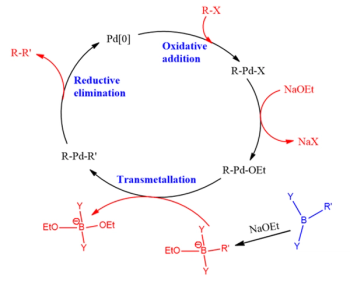
- The Column-02-03-2014
- Volume 10
- Issue 2
Glycans Marker for Gastric Cancer
A team of researchers from the University of California Davis (California, USA) in collaboration with scientists in Mexico and South Korea have performed liquid chromatography–mass spectrometry (LC–MS) to find that sugars added to proteins could be an indicator of gastric cancer.
A team of researchers from the University of California Davis (California, USA) in collaboration with scientists in Mexico and South Korea have performed liquid chromatography–mass spectrometry (LC–MS) to find that sugars added to proteins could be an indicator of gastric cancer.
The study published in the journal Cancer Prevention Research suggests that glycans (sugars) found in blood serum could be a potential clinical biomarker. The disease kills approximately 700,000 people a year, largely affecting the population of Latin America, Asia, and Eastern Europe. The disease is often the result of a Helicobacter pylori infection, which can also result in asymptomatic gastritis and duodenal ulcers. However, there is no definitive test to determine whether or not the infection will lead to the onset of gastric cancer.
Glycans are added to proteins via the process of glycosylation, that is in a sense the postal service of the cell. The addition of glycans to a protein can be regulatory, in the case of an enzyme, or can act to direct it through the membrane transport system so that it reaches its target destination in the cell. This can be misregulated in some cancers, disrupting regular cell function.
The researchers were interested to learn if the level of glycans in blood serum varied between patients with gastritis, ulcers, or cancer. LC–MS was performed on 72 samples taken from patients in Mexico City. There were 19 significant changes in glycan levels, with three that could be used to differentiate between gastric cancer and gastritis.
Jay Solnick, lead author and professor at the Center for Comparative Medicine at UC Davis, said: “We showed statistically significant differences between the serum glycan profiles of patients with gastric cancer and those with gastritis.” He added: “This is the first time anyone has looked at whether serum glycans could be used to detect gastric cancer.” The next step for the researchers is to use this statistic difference to develop a diagnostic test. - —B.D.
DOI: 10.1158/1940-6207
This article first appeared in The Column. Click
Articles in this issue
about 12 years ago
Archaeochemical Evidence Uncovers Nordic "Grog"about 12 years ago
Protecting the Consumerabout 12 years ago
Food for Thought: RAFA 2013 Reviewabout 12 years ago
Soluble Fraction Analysis in Polypropyleneabout 12 years ago
Tips & Tricks GPC/SEC: How to Install GPC/SEC Columnsabout 12 years ago
Pittcon 2014 Previewabout 12 years ago
Vol 10 No 2 The Column February 03, 2014 North American PDFabout 12 years ago
Vol 10 No 2 The Column February 03, 2014 Europe and Asia PDFabout 12 years ago
GC–MS investigates cheese made from human bacteriaNewsletter
Join the global community of analytical scientists who trust LCGC for insights on the latest techniques, trends, and expert solutions in chromatography.




